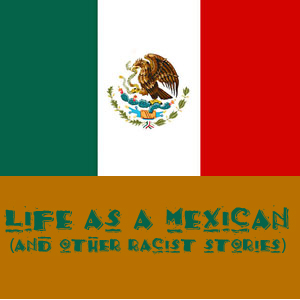Life as a Mexican
7 min read
 There’s an old saying. If you don’t have anything nice to say don’t say anything at all. A couple of days after Jeremy Lin and the New York Knicks lost their first game in the Lin era there was the line “Chink in the Armor” posted on the ESPN mobile site. Was it an intentionally racist statement? Probably not. Did it show poor judgment? Definitely. ESPN took it down and fired the employee responsible for the post. The question now has become are we being too sensitive? Surely we’re more evolved than this, right? If nothing else, the headline proves that racism is still a hot topic. It’s a hot topic even in 2012 and even before Jeremy Lin, a Chinese American, lit the NBA on fire over the past ten days. He is a person who should be judged on the merits of his ability to play a game and not the color of his skin. But even while he is becoming a global sensation we are left to wonder how “Chink in the Armor” slips through. What has transpired recently is a good indication that racism is alive and well in America. Maybe it’s not the same kind of racism that we witnessed in the sixties, but then again maybe it is.
There’s an old saying. If you don’t have anything nice to say don’t say anything at all. A couple of days after Jeremy Lin and the New York Knicks lost their first game in the Lin era there was the line “Chink in the Armor” posted on the ESPN mobile site. Was it an intentionally racist statement? Probably not. Did it show poor judgment? Definitely. ESPN took it down and fired the employee responsible for the post. The question now has become are we being too sensitive? Surely we’re more evolved than this, right? If nothing else, the headline proves that racism is still a hot topic. It’s a hot topic even in 2012 and even before Jeremy Lin, a Chinese American, lit the NBA on fire over the past ten days. He is a person who should be judged on the merits of his ability to play a game and not the color of his skin. But even while he is becoming a global sensation we are left to wonder how “Chink in the Armor” slips through. What has transpired recently is a good indication that racism is alive and well in America. Maybe it’s not the same kind of racism that we witnessed in the sixties, but then again maybe it is.
Now don’t get me wrong, I know that we have made progress in this country. After all, we elected a President who is African American and born in Hawaii. We have gone through our civil rights movements and continue to go through periods of adjustments in which different minority groups are given legal opportunities to feel less under threat and more included with society. It’s happening right before our eyes as gays are given the legal right to marry. However, never have I been more aware of who I am in the eyes of middle America than I am now. Now that I no longer live in Southern California, I’ve never felt more like a minority. Even in a state as progressive as California, apparently, regions and racial barriers matter. At first, my transition to the North didn’t seem that noticeable. There were/are pockets of minorities here like everywhere else. Strangely it isn’t the fact that there are minorities that exist in sub regions that is different about living here in the Bay area (and the rest of America for that matter). The real difference seems to lie in the reality that the segregation is much more noticeable in middle America because it isn’t “just” about the sub regions. I’m not saying that just because people of different races and cultures settle into their communities that it automatically creates racism. But I am saying that the fact that I see these clearly delineated pockets makes me wonder about what happened to the theory of a melting pot and whether or not we will ever see a truly color blind society.
My father in law often mentions a time in the future when he thinks the economy will collapse and there will be race wars. He isn’t mentioning it because he hates minorities. His reasoning lies in between race and our economy. But when he mentions it, it makes me wonder about how his experience differs from mine or how minorities are responsible for the state of the economy. But I am not a business owner competing against illegal immigrants for labor like he does. That being said I never thought I’d live to see a time of race wars – that is until I think of Arizona and how they have been systematically racist from resisting acknowledging Martin Luther King’s birthday as a national holiday to the way they can legally stop you if you look like a foreigner to the way they have eliminated the study of ones culture if it happens to be Hispanic. I wonder if my views are only different because I’m under sixty and have never thrown rocks at people in order to express my desire to keep the status quo or protect my street (or my race). But hate need not be overt. My mother in law hated the fact that people from Richmond, CA helped open the first Costco in her city. Insert your most hated race here before you must backtrack to explain that it’s a regional attitude that you intensely dislike being brought into your neighborhood. But is it? If they happen to be black is it just regional? If I ask my mother about race, she might agree with them. My mother, who is Korean, sometimes mentions how “black people” are different from everyone else. It took me a few years to understand that some of her reasoning is based on a misinterpretation of the phrase “cold blooded.” My mom’s strict interpretation of cold blooded when it comes to African Americans still makes me laugh.
“They don’t have cold blood, mom – they are not lizards. They’re describing an attitude.”
“Oh yeah they do! Don’t tell me. I know. Cold blood.”
“You know that their biology is different?”
“Oh yeah, I know!”
“You know?”
“I know!”
Don’t worry, my mother hates everyone equally. My in laws have their quirks and I know they all still love me. At least I hope they do. We try to keep our talk of race and politics to a minimum. Most of the time it isn’t relevant anyway.
I married into a family that includes one extended member of the family who is part of a white supremacist gang. He is nice to me and shakes my hand whenever I see him, but whenever I see him I wonder if he approves of my marriage to his white niece. I wonder if he knows or cares that I’m half white. I wonder if he did if that would make things better or worse. I was told when we first got married that another member of the family said, “At least he’s not Mexican.” This is all racism on the periphery, right? Sure, people express themselves, but they don’t mean it. Maybe they don’t. Maybe there is just a hierarchy of allowable hate where one race is better and my existence isn’t as awful as another if I compare myself to lesser humans. At least I’m not Mexican, right?
In my own lifetime I’ve been called everything from a Nip to a Chink. I try to believe that they didn’t mean it. However this past winter, the one that I spent as a painter, I experienced a new one – being called a Mexican. The lady that called me a Mexican apparently expressed her entire argument to the manager of the complex I was working on based upon the fact that since I was speaking Spanish to my co-workers that I must not be able to speak English. The manager asked if she had tried to talk to us and she said that she hadn’t. Why bother? We were all Mexicans. And clearly she didn’t like Mexicans. She didn’t like that “they” were speaking a language she couldn’t understand and that she couldn’t communicate with “them.” I immediately apologized to her in perfect English and told her that we didn’t mean to offend her. I also said that if she had tried to speak to any of us that she might have been surprised that we spoke English quite well. She was embarrassed and apologized. But it made me feel like Spanish was a bad habit I picked up in junior high and high school. Even though it afforded me the opportunity to communicate with people from other countries, it didn’t teach me about biology and how this now makes me a Mexican. Sorry grandma, apparently your granddaughter married a Mexican too. I take this as a compliment because at least I passed all the tests and fully qualify. By the way, if you’re wondering, none of those labels I’ve been called in the past accurately describe me being half Korean. So if you are racist please take notes and be smart about your hate. It’s “gook,” which means “country” and is derived from the word Han-gook which is one of the words for Korea. It literally means “Country of Han.”
Some people say that if racism exists that we should laugh it off because, let’s face it, racism at it’s core is a bit absurd, right? Whether we’re talking about pocket’s of people or blatant hate, I think that it’s still something that is alive and well. Should we allow it to have power over us? Of course not. Should we address it? Yes we should. Every time and in every way whether it’s by serious dissection or through humor. It’s the only way to educate us all on the differences between biology, ideology and culture. Understanding these things is really the only way we can coexist with one another as a society. Now that I’m also a Mexican, I have to conclude that when it comes to racism and what we have in common no matter what our race it comes down to a little struggle over the idea of borders and a simple misunderstanding about who really belongs here anyway. If you ask me maybe we ought to give it all back and start over from a place of understanding rather than ownership. Maybe if we all did that then we could even the playing field just a little bit more and just look at each other as Americans.






